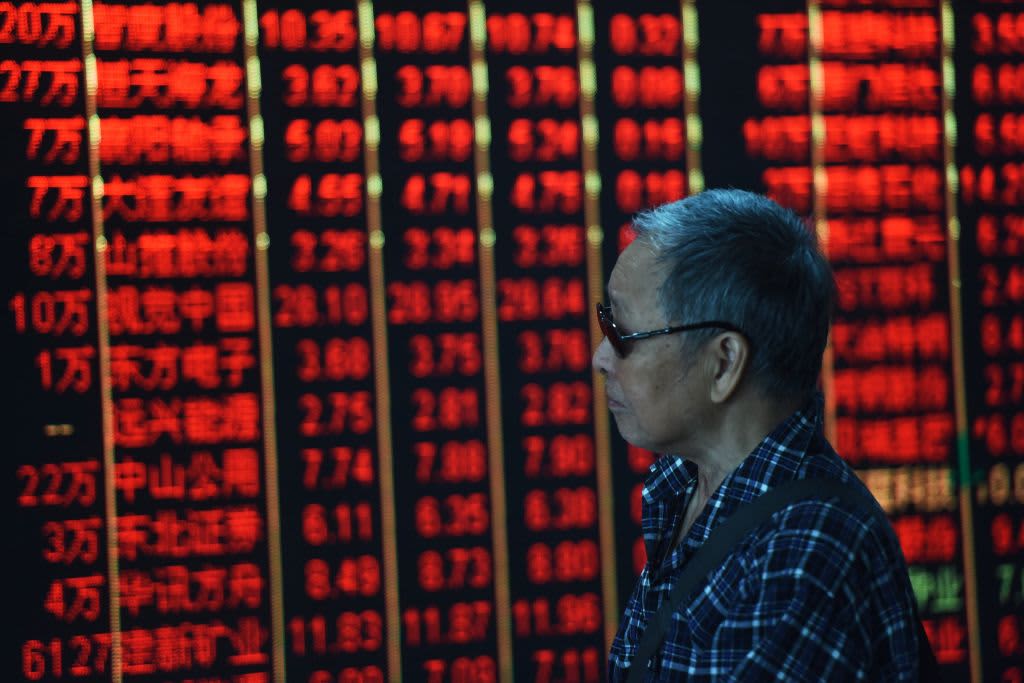This post was originally published on this site

An investor watches the electronic board at a stock exchange hall on Feb. 11, 2019 in China.
Visual China Group | Getty Images
One of the largest indexers in the world is set to announce a new round of increases in the weighting of mainland China stocks, and the addition is generating an unusual amount of controversy.
U.S. Sen. Marco Rubio of Florida doesn’t want the pension assets of federal employees supporting companies that may work against U.S. interests.
“In the case of federal employees, imagine the leverage the Chinese have if a significant amount of the retirement of service men and women in uniform and federal employees is invested in companies listed on Chinese exchanges that are not transparent, that do not undergo the same accounting scrutiny that others do and many of these companies are active agents of the Chinese government,” Rubio said on air today.
The reason for the increased weighting is not controversial: Mainland China’s stock market has been growing and is underrepresented in global indexes. Investors have been increasingly demanding wider access to global markets, and global index providers like MSCI have been slowly increasing China’s weighting.
MSCI later today will announce an increase in the weighting of mainland China in its MSCI Emerging Markets Index, a benchmark used by many global funds and ETFs, including the iShares MSCI Emerging markets ETF (EEM). They will announce an additional inclusion of roughly 175 midcap mainland China stocks in its global indices, and also increasing the weighting of 268 large-cap mainland stocks that are already in the index.
The increased weightings will go into effect on November 26th.
The addition will raise the weighting of mainland China stocks from roughly 3% to 4% of the index value. China stocks–including those listed in Hong Kong as well as those listed in the U.S. (like Alibaba), are already about 30% of that index. And its weighting will now increase.
MSCI Emerging Markets Index
(Weighting after Nov. 26)
Mainland China, 4%
Hong Kong listed China companies, 21%
US-Listed China companies, 8%
South Korea, 12%
Taiwan, 12%
India, 9%
Brazil, 8%
None of this was controversial, until the trade wars heated up. In August, Rubio and a Senate Democrat, Jeanne Shaheen, sent a letter to the chairman of the Federal Retirement Thrift Investment Board asking the group to reverse a decision to use the MSCI All Country World ex-U.S Index as the basis for a public pension fund held by federal staffers. They were objecting to federal workers owning China stocks.
“The FRTIB’s decision to track this MSCI index constitutes a decision to invest in China-based companies, including many firms that are involved in the Chinese Government’s military, espionage, human rights abuses, and “Made in China 2025″ industrial policy, and therefore poses fundamental questions about the board’s statutory and fiduciary responsibilities to American public servants who invest in federal retirement plans,” the letter stated.
In an interview on CNBC in October, MSCI CEO Henry Fernandez noted that MSCI was not an investor, an asset manager or an investment advisor. They are an intermediary: “We cannot tell investors what decisions to make.”
Brendan Ahern, chief investment officer of Kraneshares, which runs several China ETFs, put it differently: “Do you want the government in your plan based on the whims of who is in charge? The MSCI weightings does what it was supposed to do: gets global investors into China.”
Ahern conceded that the U.S. government, or any other entity, was free to choose whatever benchmark it wants. If they don’t want to have China included, they can use a benchmark that does not include China.
MSCI’s Fernandez agreed, noting that if the legal landscape changed, they will offer other products for those investors: “We’ll create specialized indices for those clients in that one country that take those legal and regulatory restrictions into account,” he told CNBC.



